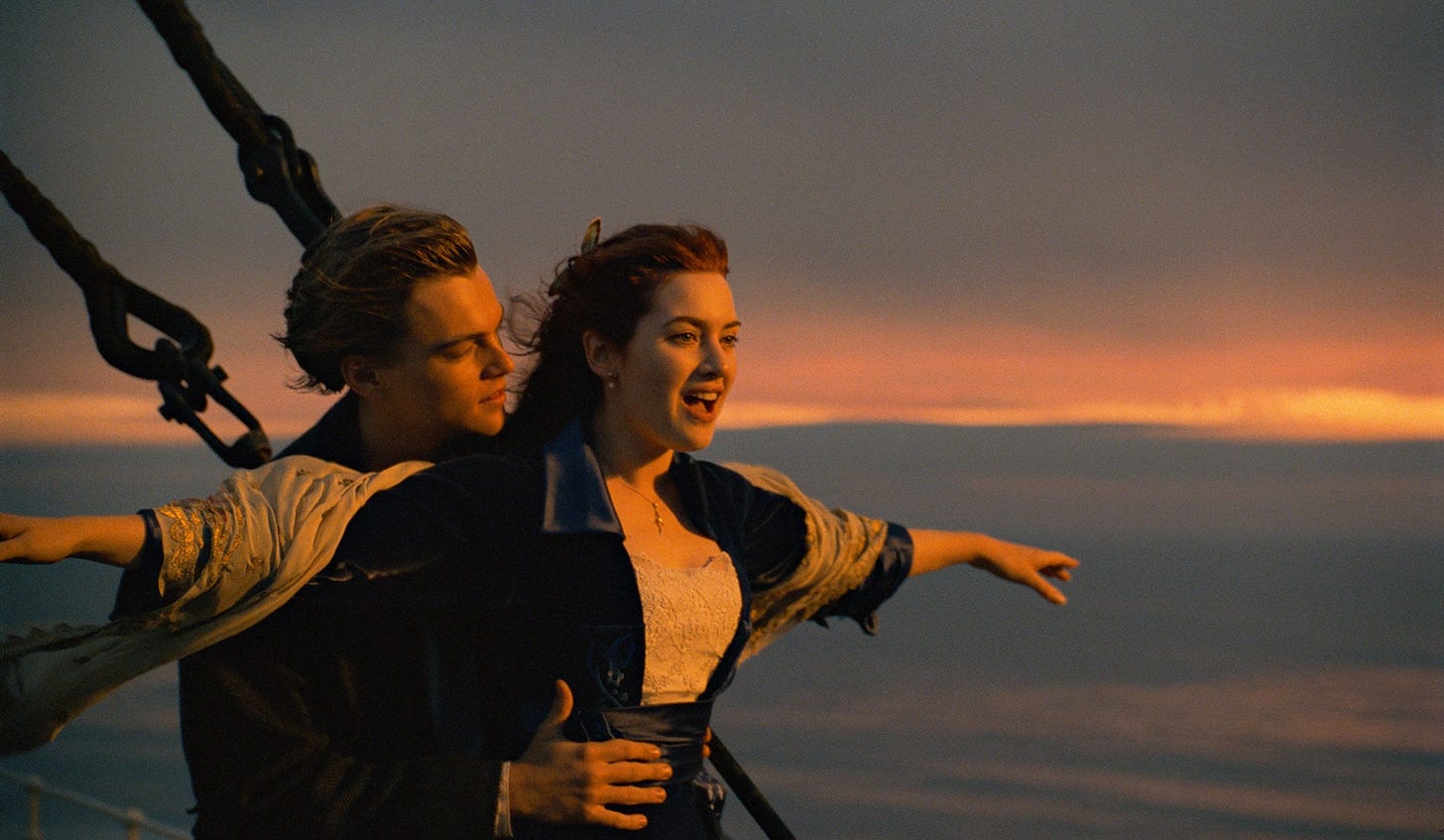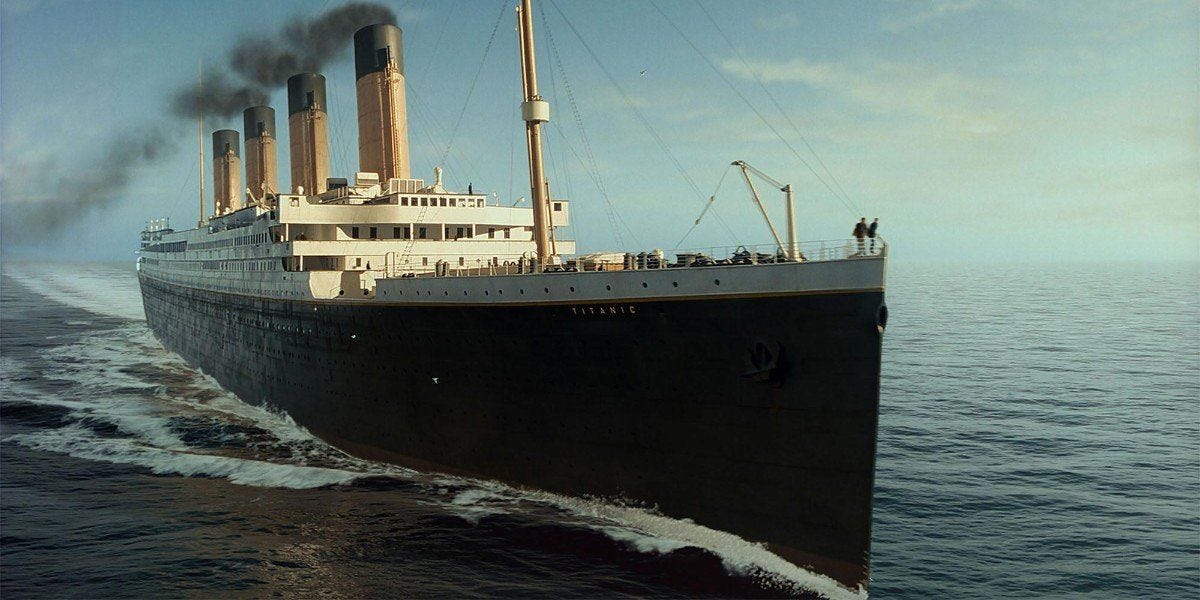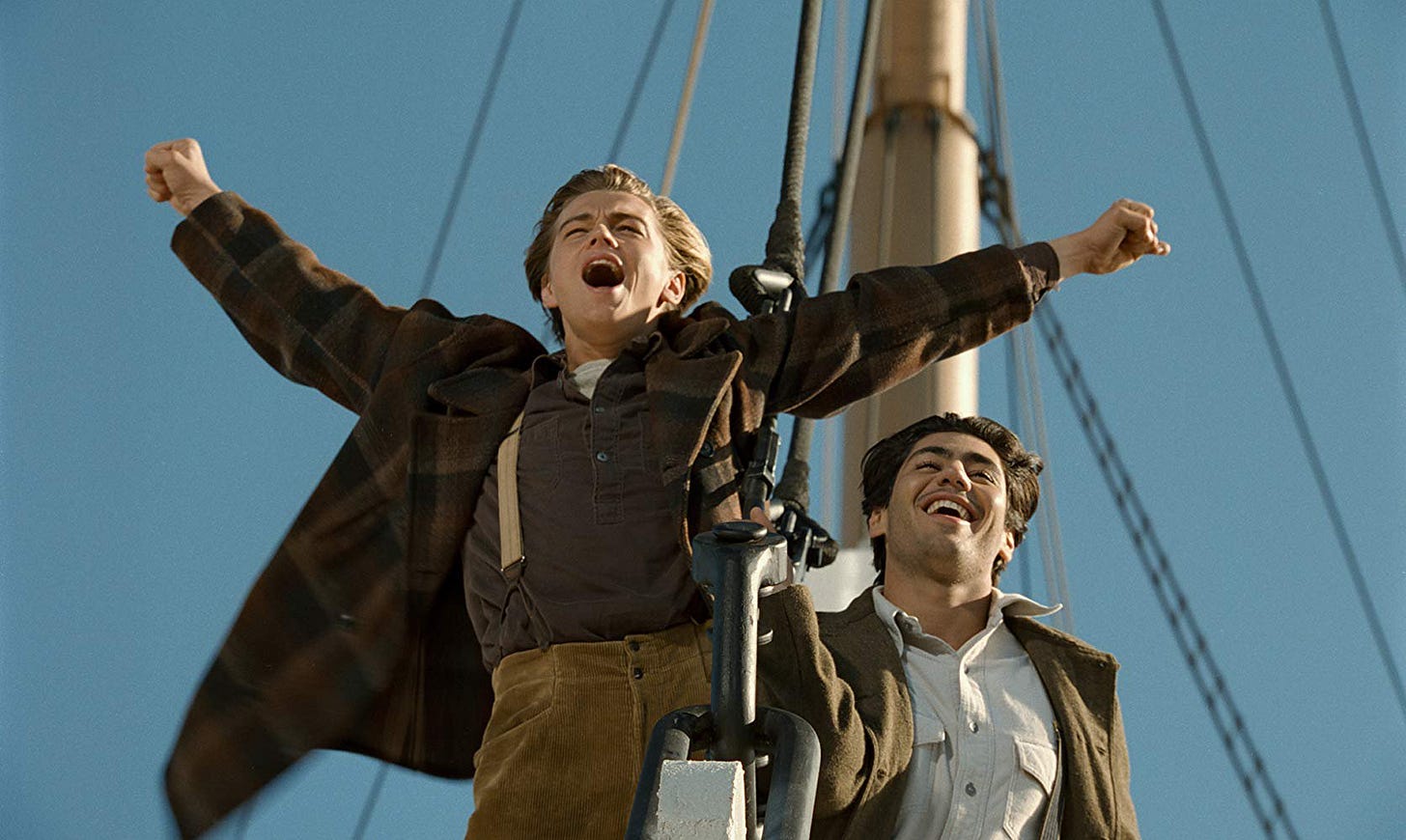My earliest recollection of Titanic involves learning and reading about the eponymous ship in elementary school and then watching the movie with my family. However, I can only recall part of the ending, which consisted of one of the lifeboats traversing the ocean of dead passengers and the exchange between a shivering Rose lying on the floating door and a dying Jack in the freezing water. I barely remember watching Titanic at a young age, so I consider this my first viewing.
“They don’t make movies like this anymore.” It’s a quote I hear from time to time. Those movies include Titanic and other epic movies from decades ago. Basically, ambitious and large-scale period movies, as they tend to be historical, that would garner awards and stand the test of time. Nowadays, there’s a dichotomy illustrated by studios’ wanting to churn out high budget IP driven movies as the path of least resistance, while the lower budget arthouse movies fly under the radar. Imagine a Venn diagram with one circle containing high budget blockbusters while the other circle contains the more artistically driven movies. There are far and few in between that could be ensconced in the middle, like many old school epics, but Titanic fulfills both of the criteria.
Titanic is probably one of the last epics, along with The Lord of the Rings trilogy, to come out before the onslaught of superhero blockbusters. The movie won a whopping 11 Oscars and grossed over $1 billion, the first to do so in history. Its success on both fronts shows how it appealed to both general audiences and critics.
I asked myself, “why did I like this movie?” I am an enjoyer of low budget indie movies full of artistic merit, but I sometimes also enjoy the most bombastic movies engineered for enjoyment for the average moviegoer. I admire the spectacle and technical aspects, especially with the late James Horner’s score, historically accurate production design, and visual effects, all helping with the immersion. Stripping this down to its bare bones, the movie is a romantic drama with the backdrop of a sinking ship. It’s about the blossoming relationship between Rose and Jack and how she ultimately gains the resolve to leave her family and the life of the aristocracy for good.
Throughout the movie, we are rooting for the main characters, especially for Rose to unshackle herself from the rigid class structure. In some ways, we can relate to her story of finding oneself and becoming independent of her oppressive family, with Jack serving as the catalyst for her defection. It’s the pursuit for liberation that’s the sweetest because everybody wants control over their own lives. We can only cheer for her after she changes her last name to Dawson.
Though not a perfect movie because of cheesy dialogue and tonal inconsistencies here and there, it is still quite admirable from a filmmaking and writing standpoint. The staying power for this movie feels quite strong, all thanks to the stars like Leonardo DiCaprio and Kate Winslet attached and James Cameron’s direction. Because of its examination of classism and hubris, technical excellence, and iconic cast, it stays relevant in the film discourse long after its release. Long live James Cameron. He is indeed the king of the world. ∎




